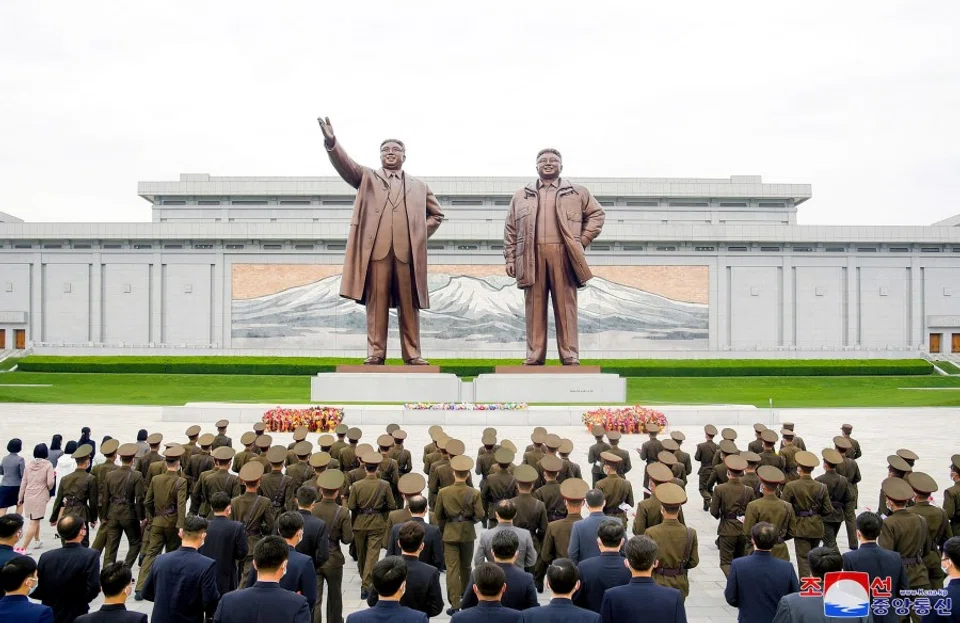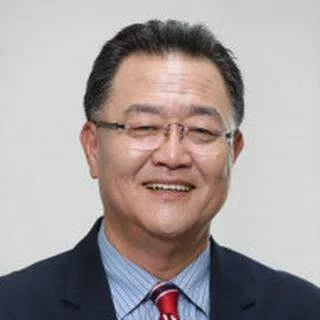China can do more on the North Korean nuclear issue
With North Korea declaring itself a nuclear state and indicating that it would only enter negotiations in its position as one, the situation in the Korean peninsula is getting more unstable. Among the global stakeholders in the issue, China is in a position to do more. Trilateral cooperation between the US, South Korea and China is even possible if China changes its perceptions and long-held approaches.

It is common knowledge that North Korea has become a real nuclear state. Over 30 years from 1992 to 2023, North Korea has engaged in talks to abandon nuclear weapons, which in fact has bought it time to develop nuclear weapons.
Between 9 October 2006 to 3 September 2017, North Korea conducted six nuclear tests, and is now considering a seventh. It has also successfully tested various medium and short-range and intercontinental ballistic missiles (ICBMs), submarine-launched ballistic missiles (SLBMs) and so on, greatly raising the level of its nuclear weapons capability. After its successful sixth nuclear test and Hwasong-15 ICBM missile launch in 2017, North Korea announced that its nuclear arms were complete.
Lowering the threshold for nuclear weapon use
The Kim Jong-un administration has placed emphasis on developing North Korea's nuclear and ballistic missile programme. In 2012, its constitution explicitly defined North Korea as a "nuclear state".
In response to the threat of military action and sanctions by US President Donald Trump against North Korea, as well as international pressure, Kim seemed to respond with a peaceful gesture in his New Year's speech in 2018. Three inter-Korean summits in 2018 led to the Panmunjom Declaration for Peace, Prosperity and Unification of the Korean Peninsula on 27 April, the Pyongyang Joint Declaration in September, and a military agreement on 19 September.
Following the US-DPRK summit in Singapore in June 2018, he issued a joint statement with the US; another summit was held in Hanoi, Vietnam in February 2019 with no results.
One might say that even as North Korea is gradually raising the threshold for denuclearisation negotiations, it is lowering its own threshold for nuclear weapon use in order to deal with nuclear negotiations...

North Korea completely ignores the goodwill of South Korea and the efforts of the international community, and nuclear negotiations have slackened and even stalled for some time now.
In 2022, North Korea passed a law on nuclear weapons, allowing it to use nuclear weapons at will, signalling the opposite of what it says about abandoning nuclear weapons. One might say that even as North Korea is gradually raising the threshold for denuclearisation negotiations, it is lowering its own threshold for nuclear weapon use in order to deal with nuclear negotiations, particularly in response to the US's "hostile policy" and "double standards" towards North Korea, which the US is not buying.
Negotiating as a nuclear state
This is because the US does not sense North Korea's willingness for "complete denuclearisation"; while North Korea claims that nuclear weapons are a "self-defence measure" against the US's hostile policy towards North Korea, it has repeatedly threatened to launch a preemptive strike against South Korea and declared that as a nuclear state, it will not accept any negotiations or persuasion from any country.
... its basic intention of possessing nuclear weapons is to exert pressure on South Korea and control the US.
This is also why the Yoon Suk-yeol administration in South Korea believes that the rapid large-scale development of North Korea's nuclear weapons and missiles poses a serious threat, not only to the Korean peninsula and Northeast Asia, but also to the international community.
This move by North Korea is of great strategic significance - its basic intention of possessing nuclear weapons is to exert pressure on South Korea and control the US. North Korea is committed to the advanced development of nuclear weapons, and there are comprehensive considerations behind it, including consolidating its system and hereditary regime, strengthening Kim's leadership, unifying its people, pushing for dialogues with the US, and taking the lead in the relationship between North and South Korea.

The problem is that in more than 30 years of denuclearisation talks, denuclearisation itself is no longer the focus and has even been "marginalised"; there is no discussion of denuclearisation, and North Korea wants to lead negotiations as a nuclear state.
North Korea rebuffed the Biden administration's offers of "unconditional dialogue" claiming that the right atmospherics for dialogue have yet to be created. Instead, it test-fired over 100 missiles while developing tactical nuclear weapons. A nuclear power possessing nuclear weapons under the pretence of "self-defence" is threatening Korea, the US and the world.
North Korea's nuclear weapons capability not only endangers international insecurity but gives North Korea a means of pressuring the world by threatening to use nuclear force to reunite the Korean peninsula.
China needs to step up
From this perspective, new talks and consensus are needed to resolve the North Korean nuclear issue. Indeed, while North Korea's nuclear weapons capability is not the responsibility of any particular country, China - as North Korea's biggest "guardian" - plays an important role in spearheading a round of negotiations to resolve the North Korea nuclear issue.
First, China needs to offer a substantive solution. The erstwhile understanding of North Korea developing nuclear weapons to deal with the powerful US is an arbitrary one. North Korea's nuclear weapons capability not only endangers international insecurity but gives North Korea a means of pressuring the world by threatening to use nuclear force to reunite the Korean peninsula. Thus, a North Korea that possesses nuclear weapons is clearly one that obstructs global peace.

Second, China's plan to ask North Korea to suspend tests of missile and nuclear technology in exchange for the halting of the US-South Korea annual joint military drills is no longer feasible. Declaratory claims of peace and the promotion of a diplomatic solution will only deepen the impression that China is helping North Korea develop nuclear weapons and continue to send the wrong signal to North Korea. North Korea's ICBM missiles could hit China if they simply change course. This is clearly an international issue.
Tolerating a North Korea that has no self-control is akin to sending the message that China will never abandon North Korea out of strategic considerations.
Third, China has never - at least until now - exerted real pressure on North Korea because of the long-held thinking that North Korea is a strategic asset. Exerting pressure as events unfold is not the same as seeking a peaceful resolution only at the end of it. Tolerating a North Korea that has no self-control is akin to sending the message that China will never abandon North Korea out of strategic considerations.
Fourth, while China focuses on its "core interests", it is also overly focused on the strategic equilibrium among great powers. Thus, it overlooks the fact that South Korea's security interests are directly affected by North Korea's nuclear threat, and concludes that strengthening the ROK-US alliance and the ROK-US-Japan trilateral cooperation are measures to keep China in check. But for South Korea, these issues hinge on the fact that North Korea possesses nuclear weapons.

The North Korean nuclear issue has entered a dangerous "red zone", with North Korea announcing that it will never give up nuclear weapons. Thus, China continuing to call for North Korea, South Korea and the US to exercise self-control would be tantamount to being irresponsible and sitting idly by.
North Korea's possession of nuclear weapons could lead to a "nuclear domino effect" on neighbouring countries, in effect destroying the "strategic equilibrium" China has emphasised. Furthermore, China, as a permanent member of the UN Security Council, has the responsibility to prevent nuclear proliferation, as does Russia.
China must understand that the deterioration of North Korea's nuclear issue could turn into a more serious obstacle to China's national interests. While South Korean and US policies on North Korea are important, if China can deal with the North Korean nuclear issue appropriately and adjust its perceptions of North Korea, joint efforts by the US, China and South Korea - the three countries closest to the matter - are entirely possible.
This article was first published in Lianhe Zaobao as "化解朝核危机需要中国合作".
Related: Can South Korea's Yoon and China's Xi denuclearise North Korea? | To lead the world, Biden's US will need China's help with North Korea | A China-North Korea summit may be good for the world | Can China avert North Korea's seventh nuclear test? | What to make of Kim Jong-un's missile launch spree





![[Photos] Fact versus fiction: The portrayal of WWII anti-Japanese martyrs in Taiwan](https://cassette.sphdigital.com.sg/image/thinkchina/3494f8bd481870f7c65b881fd21a3fd733f573f23232376e39c532a2c7593cbc)